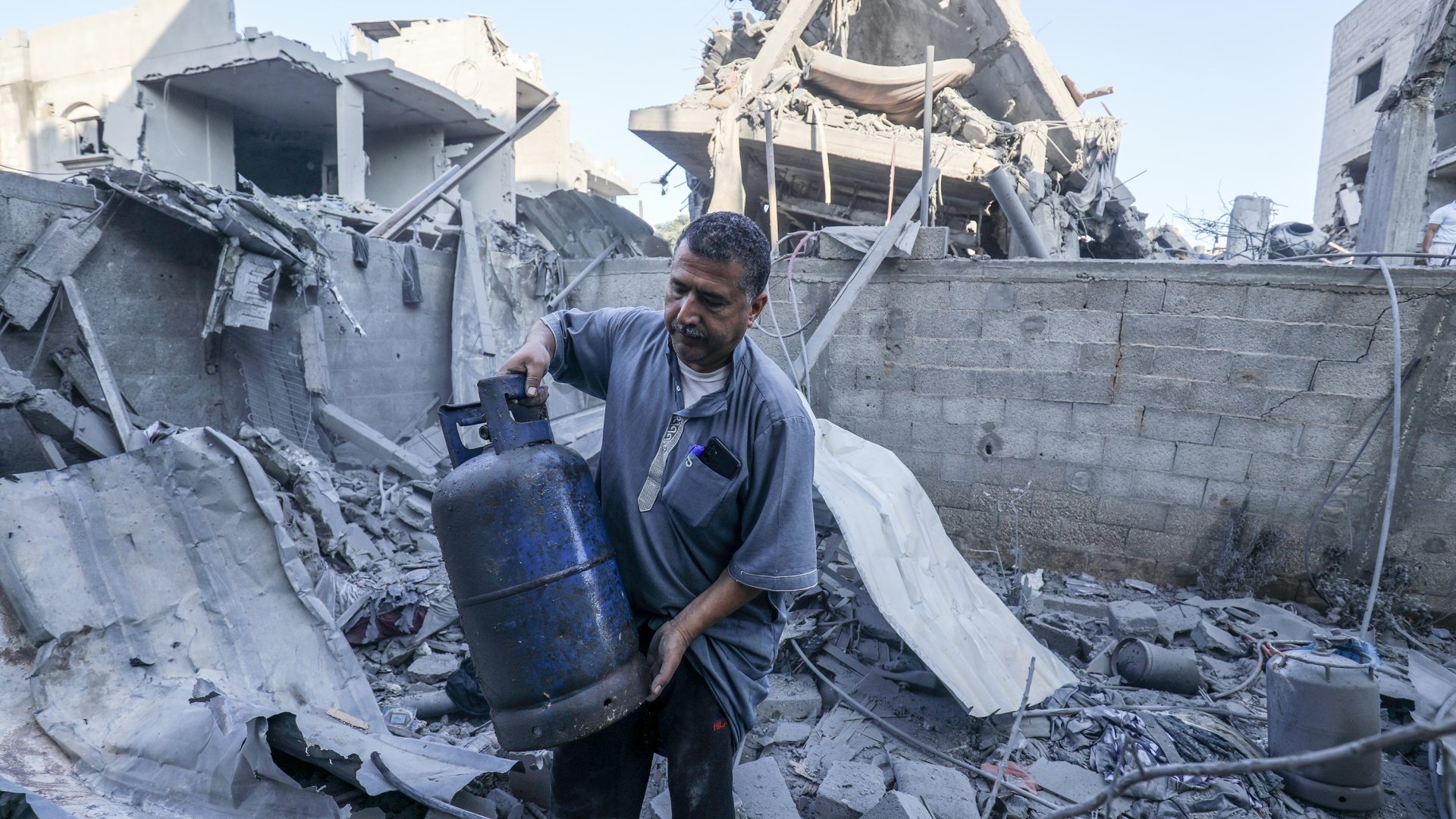Dire humanitarian crisis with no safe place
The daily reality of life in Gaza is marked by extreme suffering and tragedy. This extends far beyond the loss of life as the misery is compounded by the destruction of critical infrastructure, including roads, schools, and hospitals.
The displacement of families and the loss of homes and belongings are causing untold suffering, with more than 120,000 residential houses reduced to ruins. There is, tragically, no safe place to be found in Gaza.
The constant threat of airstrikes, the loss of family members is taking a huge psychological toll on the people of Gaza, with children and older people experiencing the most profound trauma and fear.
Devastating impact on older people
The violence has had a profound and devastating impact on the older population in Gaza. Many older individuals have lost their lives in the airstrikes, while some remain buried under the rubble of their homes, making it difficult to reach and rescue them.
For those older individuals who have survived and been displaced by the conflict, their living conditions are nothing short of miserable. They have sought refuge in schools and hospital courtyards, where they are confronted with dire challenges and are struggling to meet their most basic needs, such as food, clean water, and essential medications.
The chaos of displacement has left them with minimal resources and comfort. Many have been forced them to leave behind their assistive devices, such as walking sticks and wheelchairs, crucial medicines, and personal belongings. They are forced to sleep on the unforgiving ground, which further exacerbates their physical discomfort and suffering.
For the older people who have chosen to remain in their homes, they are also facing severe difficulties. The ongoing violence has disrupted the healthcare system, making it increasingly difficult for them to access essential medications and the medical care they require. Additionally, the constant fear and anxiety stemming from the unrelenting airstrikes have taken a significant toll on their mental and emotional well-being. They live in a state of perpetual distress, uncertain about their safety and the future.
Urgent need for humanitarian assistance
The immediate humanitarian assistance is a matter of life and death in many cases. We are in urgent need of critical provisions which are essential for saving lives, mitigating suffering, and providing a basic standard of living for the affected population. Coordinated efforts and support from the international community are crucial to addressing these urgent needs and ensuring the well-being of those caught in this conflict.
Basic Medication for Healthcare Facilities
The immediate need is for a robust supply of medications to support healthcare facilities, mainly hospitals, that are overwhelmed by the casualties resulting from the ongoing aggression. This includes not only general medical supplies, but also specific medications required to treat injuries and illnesses that have resulted from the conflict.
Medical Disposables
Essential medical disposables such as bandages, syringes, wound dressings, and personal protective equipment for healthcare workers are crucial. These items are essential to provide effective medical care, especially in times of crisis.
Safe Drinking Water
Access to safe drinking water is fundamental for the well-being of the affected population. Ensuring a clean and reliable source of water helps prevent waterborne diseases and dehydration, particularly important during displacement.
Temporary Shelters (Tents)
Many people have been displaced from their homes due to the conflict and require safe and secure temporary shelters. Tents offer a temporary solution, providing shelter from the elements and a sense of safety, especially for those who have lost their homes.
Blankets
With people forced into displacement and often lacking adequate shelter, blankets are essential for warmth and comfort, especially during the night when temperatures can drop.
Basic Food Items
Providing access to basic food items is essential to alleviate hunger and malnutrition. This should include non-perishable items such as rice, beans, canned goods, and food that does not require extensive preparation, considering the limited resources available.
The escalation of aggression on Gaza has created a complex web of challenges, affecting not only our work and organization but also the personal lives and well-being of our staff and the communities we serve. It underscores the urgency of seeking a resolution to the conflict and providing humanitarian assistance to those affected.
The international community must come together to address this humanitarian crisis, as the scale of suffering in Gaza is immense. Urgent efforts are needed to bring an end to the violence, ensure access to medical care and humanitarian aid, and create conditions for lasting peace and stability in the region.
The plight of older individuals in Gaza is a distressing and overlooked aspect of this humanitarian crisis. They are among the most vulnerable and require urgent attention and assistance from the international community to ensure their safety, well-being, and access to essential services during this turbulent period.
Juzoor for Health and Social Development is a Palestinian NGO with offices in Gaza and the West Bank, dedicated to improving the health and well-being of Palestinian families and promoting health as a basic human right. Juzoor is a member of the HelpAge global network, delivering support and projects focused on Palestine’s older people.

